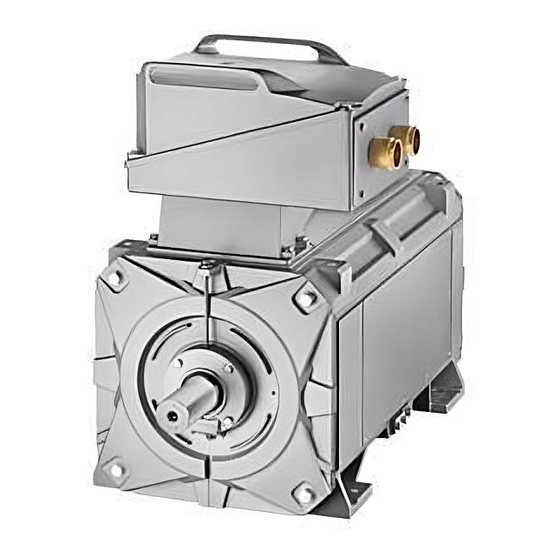
Siemens SIMOTICS FD 1LH1 Manuals
Manuals and User Guides for Siemens SIMOTICS FD 1LH1. We have 2 Siemens SIMOTICS FD 1LH1 manuals available for free PDF download: Operating Instructions & Installation Instructions
Siemens SIMOTICS FD 1LH1 Operating Instructions & Installation Instructions (174 pages)
Induction motor
Table of Contents
-
Introduction13
-
Description21
-
Image22
-
Storage40
-
Image46
-
Assembly49
-
Image68
-
Terminal Box71
-
Image72
-
Image73
-
Image75
-
Image76
-
Preparation80
-
Connection83
-
Start-Up97
-
Test Run101
-
Switching off103
-
Image105
-
Image106
-
Operation111
-
Stoppages113
-
Faults117
-
Maintenance123
-
Remove V Ring135
-
Image136
-
Image138
-
Seal the Motor140
-
Image140
-
Spare Parts141
-
Ordering Data141
-
Roller Bearings141
-
Image142
-
Image144
-
Image145
-
Image149
-
Image154
-
Image155
-
Image156
-
Image157
-
Disposal159
-
Index169
Advertisement
Siemens SIMOTICS FD 1LH1 Operating Instructions & Installation Instructions (174 pages)
Low-voltage motor
Table of Contents
-
Introduction13
-
Description21
-
Power Loss32
-
Transport40
-
Storage44
-
Assembly53
-
Basic Rules73
-
Terminal Box74
-
Preparation83
-
Start-Up97
-
Test Run102
-
Switching off104
-
Operation111
-
Stoppages113
-
Faults117
-
Maintenance123
-
Remove V Ring134
-
Seal the Motor139
-
Spare Parts141
-
Ordering Data141
-
Disposal159
-
Index169
Advertisement

